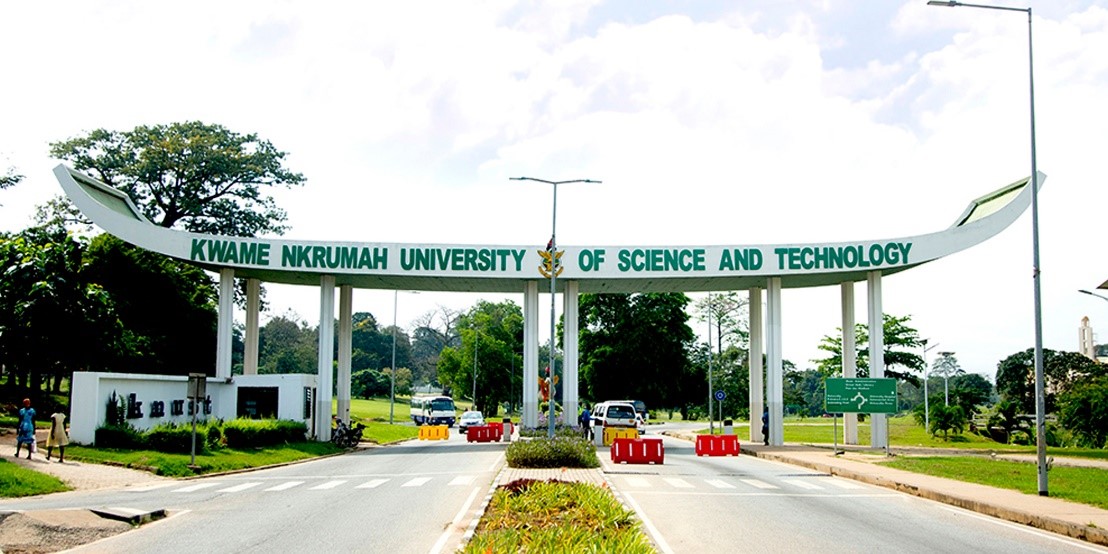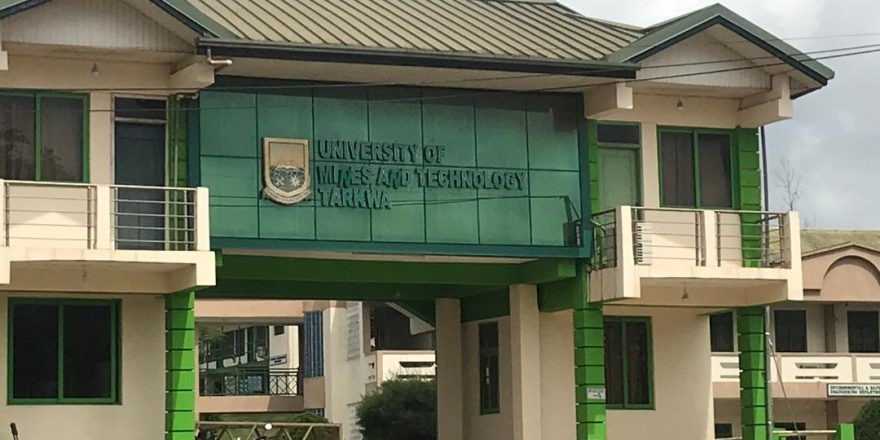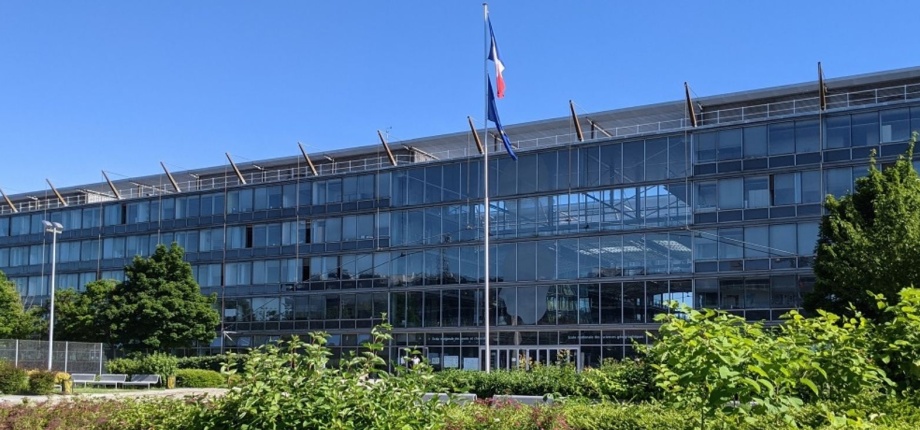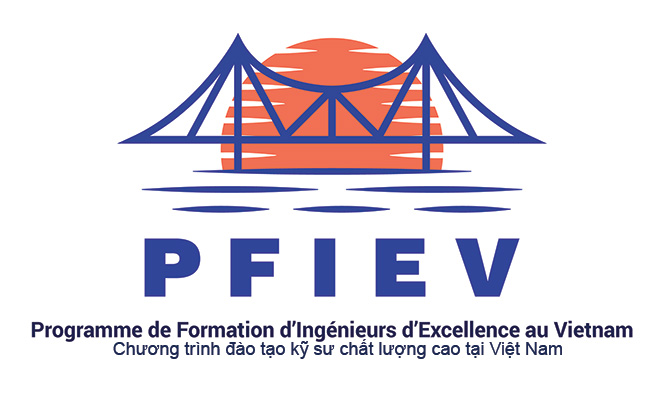Capacity building programs
École nationale des ponts et chaussées accompanies higher education institutions in in fast growing economy countries in the world, in order to:
- Improve the quality of training and its relevance to the labour market and society;
- Improve the level of competences and skills by developing or modernizing curricula;
- Strengthen management, governance and innovation capacities, as well as the internationalization of institutions, factors of sustainability.
The Program for Training Engineers of Excellence in Vietnam (PFIEV)
A history of Franco-Vietnamese cooperation
The PFIEV was born out of a memorandum of understanding signed in 1997 between the French and Vietnamese governments, with the ambition of modernizing engineering training in Vietnam while drawing on European standards of excellence. Launched in 1999, the program quickly established itself as a pioneering model of international educational cooperation in Asia.
From the outset, the PFIEV has brought together prestigious establishments in both countries to offer a comprehensive training program combining technical and scientific skills with an economic and managerial outlook. This approach aims to train executives capable of meeting contemporary industrial and technological challenges.
PFIEV members and partners
The PFIEV is based on a strategic partnership between four Vietnamese universities and nine French institutions:
Vietnamese partner universities :
- Hanoi Polytechnic University,
- Polytechnic University of Da Nang,
- Ho Chi Minh City Polytechnic University,
- Hanoi University of Civil Engineering.
French consortium members :
- CentraleSupélec,
- École nationale des ponts et chaussées (ENPC),
- Lycée Louis-le-Grand,
- ISAE-ENSMA,
- INSA Lyon,
- Toulouse INP,
- Grenoble INP,
- IMT Atlantique,
- Polytech Marseille.
This Franco-Vietnamese network guarantees excellent training standards, reinforced by a double accreditation unique in Asia, issued by the Commission des Titres d'Ingénieur (CTI ) and the Haut Conseil de l'Évaluation de la Recherche et de l'Enseignement Supérieur (HCERES).
The PFIEV is supported by the French Ministry of Higher Education and Research, the French Embassy in Vietnam, which funds scholarships and supports academic exchanges, and the French Institute of Vietnam, which helps students learn French.
The key role of ENPC
ENPC is a direct partner of two Vietnamese universities: theHanoi University of Civil Engineering and theHo Chi Minh City Polytechnic University.
ENPC also acts as spokesperson for the French consortium. This role, performed by Thibaut Skrzypek, involves coordinating the efforts of the French partners, promoting the program and ensuring the coherence of its pedagogical objectives.
A forward-looking program
In 2024, PFIEV celebrated its 25th anniversary at a ceremony held at Hanoi Polytechnic University. The event brought together representatives of the nine French partner institutions, as well as the French Ambassador to Vietnam, Olivier Brochet, accompanied by representatives of the Embassy. Speeches emphasized the importance of the program in strengthening Franco-Vietnamese relations, while highlighting the achievements of the 9,000 engineers trained since its inception. The Director of Hanoi Polytechnic University, Huỳnh Quyết Thắng, emphasized at the 25ᵉ anniversary celebration the importance of developing collaborations between universities and companies, while integrating innovative solutions to ecological and digital challenges.
In Africa more than anywhere else, the urban, economic, environmental and demographic challenges and the need for human capital development require specific framework of cooperation with local higher education institutions: "capacity development" programs, setting up trainings of excellence, improvement of research methods and research practice...
In this context, the École nationale des ponts et chaussées is committed to supporting the National Polytechnic Institute Houphouët-Boigny (Yamoussoukro and Abidjan, Côte d'Ivoire), in developing training expertise in transport and urban planning, with the support of the World Bank. This operation is part of the Project to Support the Competitiveness of the Greater Abidjan Agglomeration.
In 2019, the 7-year cooperation started with the signing of an agreement between the two higher education institutions. The first realization of this collaboration was the creation of a Professional Master in Transport and Urban Planning dedicated to all professionals and stakeholders of urban transport sector. This program is jointly designed by the two institutions, and in close collaboration with sector operators and Ivorian public authorities. An exchange of good practices program between teachers and researchers contributes to developing the capacities of both schools teaching staffs. This capacity development program will lead Ivorian teams to autonomy by 2025.
Beyond this specific action, the objective is to formalize and transfer specific knowledge and skills in Master-level trainings design, which includes the contribution of industrial partners.
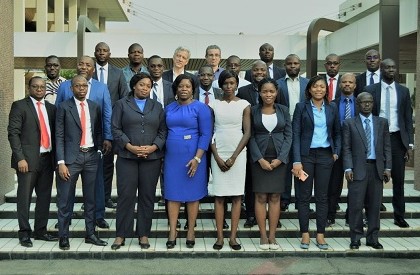
The first promotion of the Professional Master in Transport and Urban Planning started in January 2020. It is only the first achievement of the long-term collaboration in which the two HEIs are engaged.
Many other projects are being studied: student and doctoral mobility through the Erasmus + program, new programs design, scientific cooperation and research support. The École nationale des ponts et chaussées wishes to explore all these types of partnerships, to support the development of this world-famous academic global player renowned for the quality of its trainings and to learn from it.
Furthermore, this global approach responds to two challenges:
- To contribute to strengthening the vocation of the National Polytechnic Institute Houphouët-Boigny to be a regional hub,
- To support the competitiveness of Ivory Coast and to foster the transformation of the economy and the emergence of new jobs linked to digital and environmental transition in Africa.
- Kenya with the University of Nairobi:
A lot of exchanges and two exploration trips enabled the teams to meet and exchange. Supported by AFD, this project goal is to support this partner in the revamping of its engineering curriculum. Discussions will continue between the stakeholders, in order to study the feasibility of the project and define the potential pattern of this cooperation.
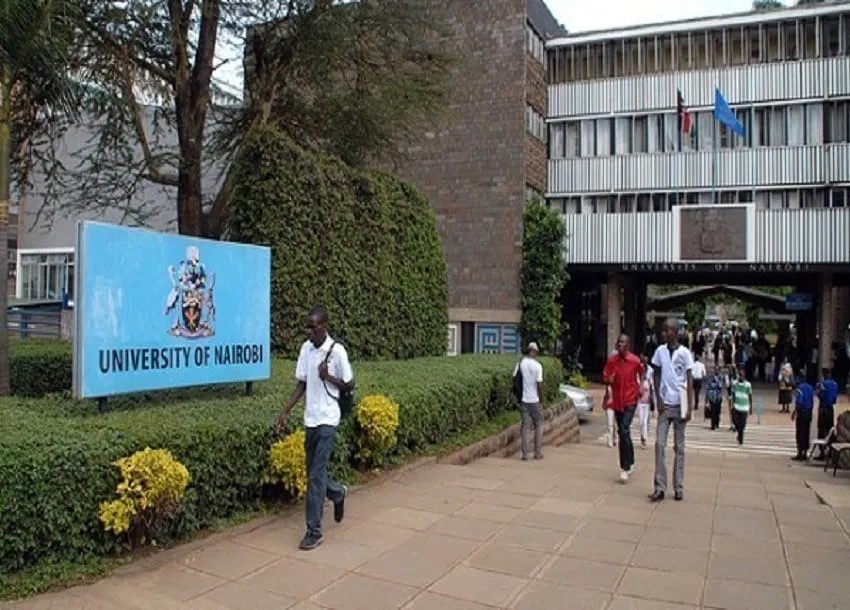
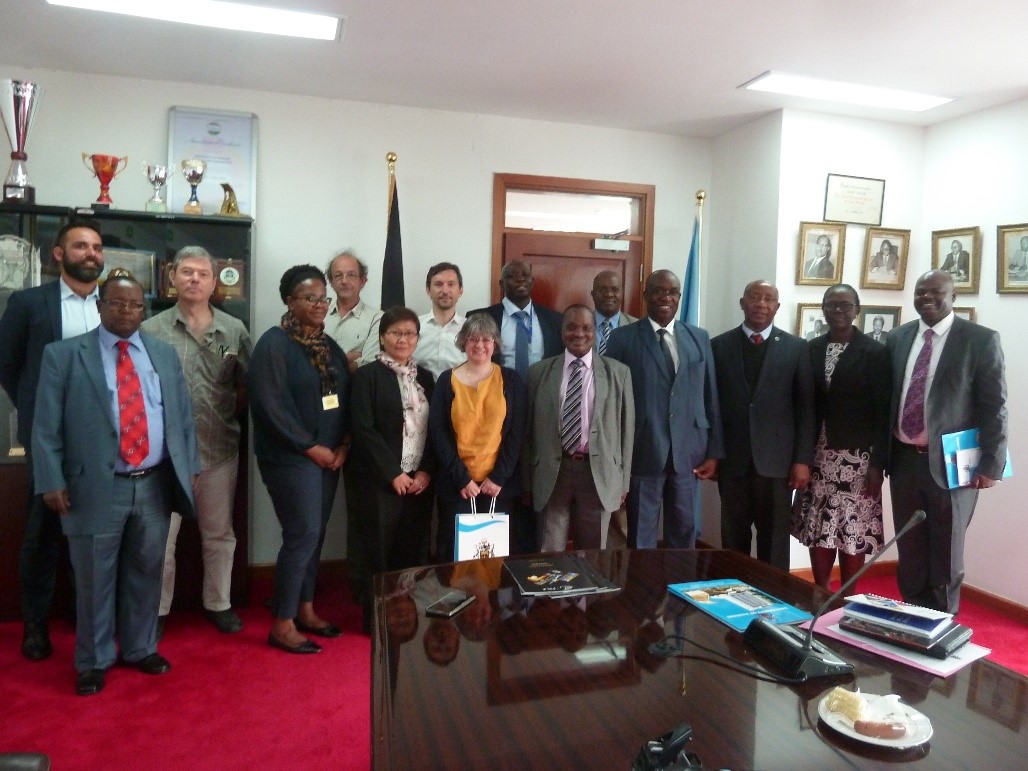
- Ghana with the University of Mines and Technology (UMaT), based in Tarkawa and the Kwame Nkrumah University of Science and Technology (KNUST), based in Kumasi:
Support for the development of these two partners research activities is under consideration. This collaboration could include research trips, co-supervision or joint supervision of doctoral thesis supervised by one of the Ghanaian universities and the École nationale des ponts et chaussées.
Exchanges and meetings between the École nationale des ponts et chaussées team and their colleagues from the World Bank Centers of Excellence located in Ghana took place too. The Regional Water and Environmental Sanitation Center Kumasi (RWESCK) and the Regional Transport Research and Education Centre Kumasi (TRECK) were approached. In both cases, the know-how and research expertise of the École nationale des ponts et chaussées laboratories: LEESU and HM&Co for water-related subjects and the Transport Mobility Cities Laboratory for mobility and transport issues are perfectly in line with these Research Centers goals. Joint work on research projects or co-supervised thesis would develop the skills of these new partners and give African teams access to cutting-edge technical resources and equipment.
